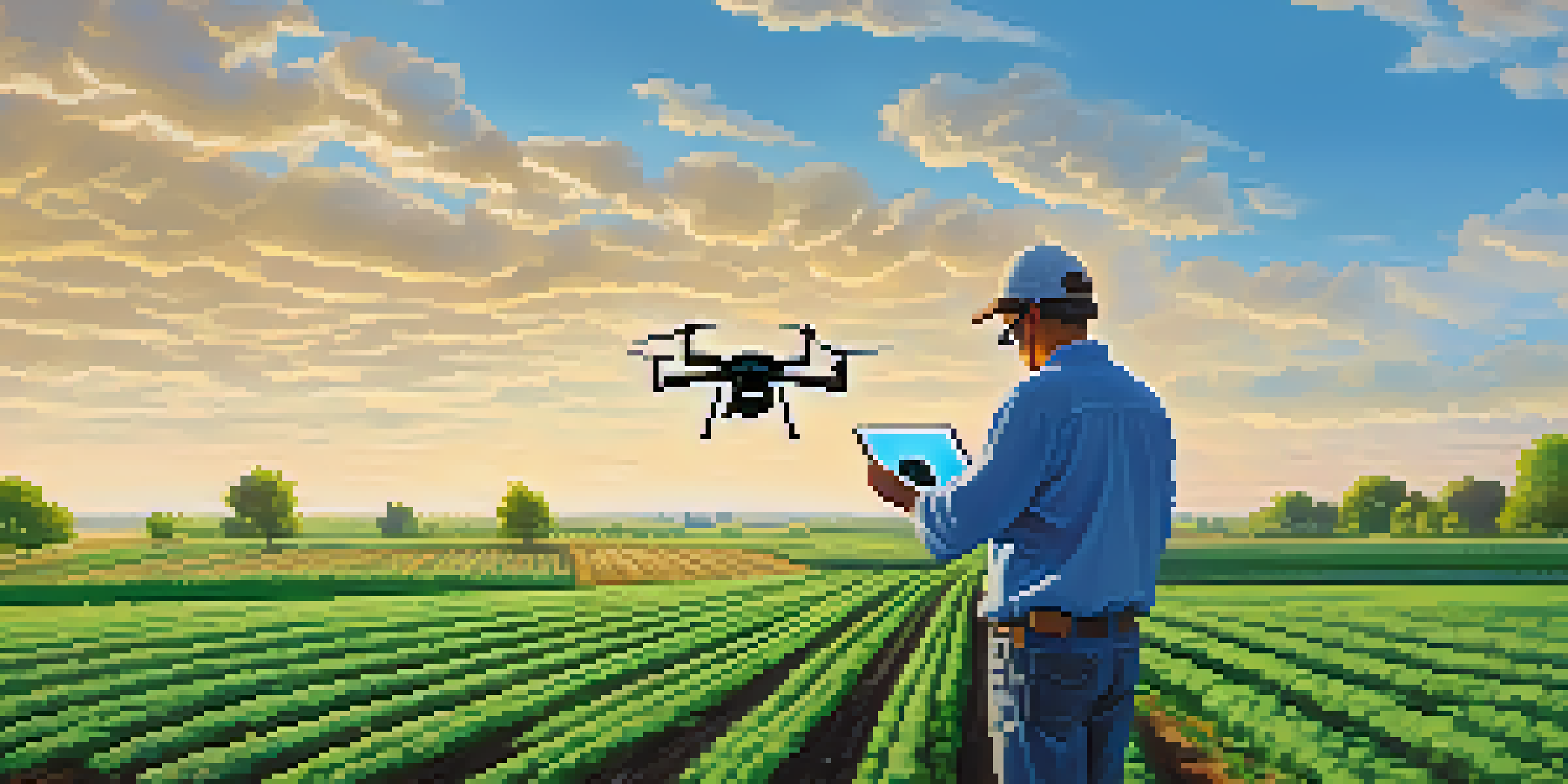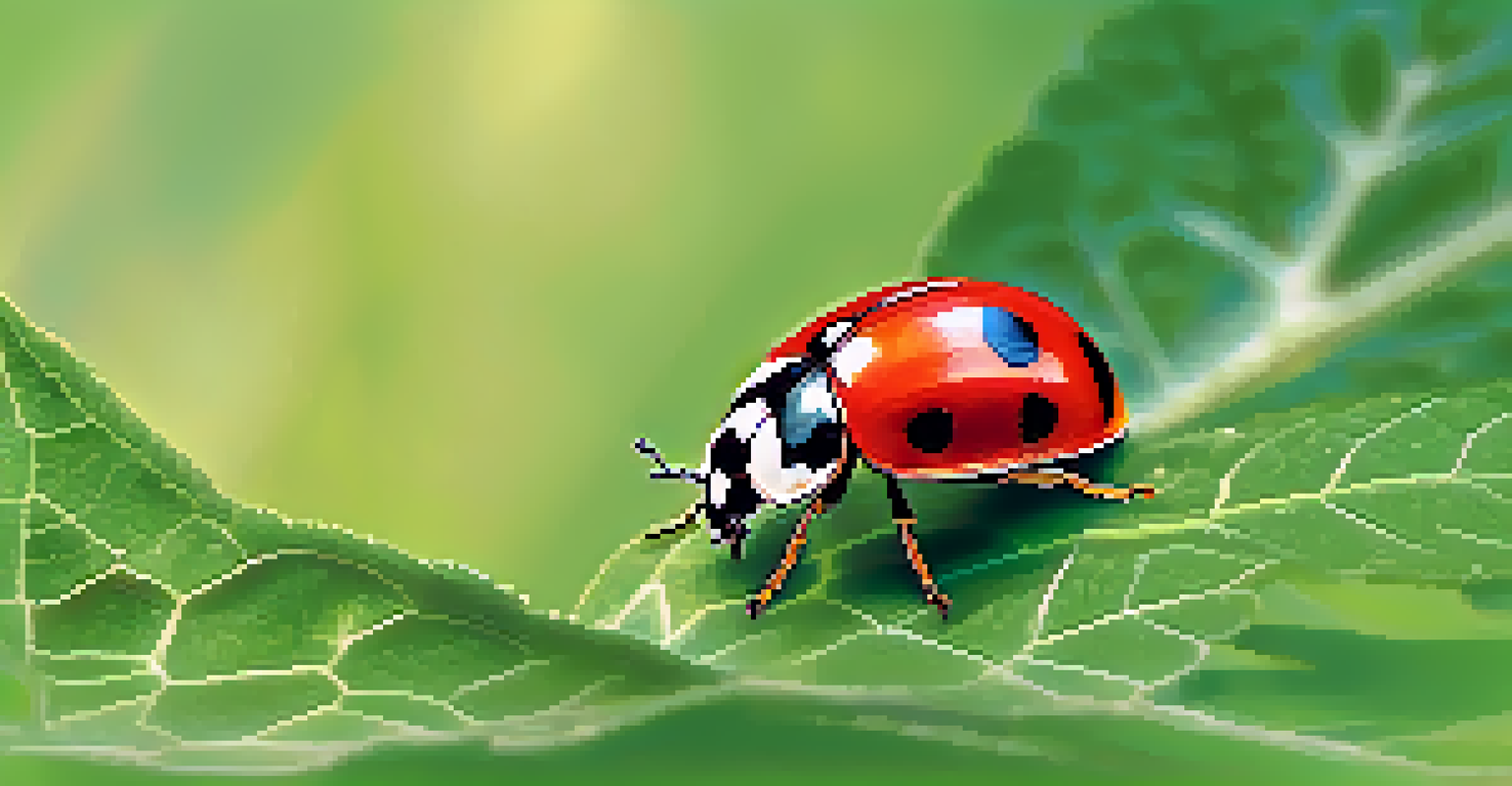Kansas's Innovative Approaches to Pest Management Research

Overview of Pest Management Research in Kansas
Kansas has become a hub for innovative pest management research, focusing on sustainable practices that benefit both agriculture and the environment. Researchers in the state are exploring various methods to control pests while minimizing the use of harmful chemicals. This approach not only aims to protect crops but also to preserve the delicate ecosystem in Kansas.
The first step in a successful pest management program is to understand the ecology of the pests you are dealing with.
The research initiatives often involve collaboration among universities, agricultural organizations, and local farmers. By pooling resources and knowledge, these groups can tackle pest issues more effectively and share successful strategies. This collaborative spirit is crucial in developing solutions that are both practical and environmentally friendly.
Kansas's commitment to advancing pest management research reflects a broader trend toward sustainable agriculture, which is gaining momentum across the United States. As challenges related to pest resistance and climate change intensify, innovative research will play a critical role in ensuring the state's agricultural success.
Integrated Pest Management (IPM) Strategies
One of the key focuses of pest management research in Kansas is Integrated Pest Management (IPM). This holistic approach combines various strategies to manage pest populations effectively while reducing reliance on chemical pesticides. IPM practices include crop rotation, biological control, and habitat manipulation, which create a balanced ecosystem.

For instance, researchers might encourage the presence of natural predators, like ladybugs, to control aphid populations in crops. By fostering these beneficial insects, farmers can reduce pest numbers without resorting to chemical treatments. This not only helps in controlling pests but also supports biodiversity, which is essential for a healthy ecosystem.
Sustainable Pest Management Focus
Kansas is prioritizing sustainable pest management practices that benefit both agriculture and the environment.
IPM strategies are tailored to specific crops and pests, making them highly adaptable. Kansas researchers continually monitor pest populations and environmental conditions to refine these strategies, ensuring that they remain effective and sustainable over time.
Use of Technology in Pest Monitoring
Kansas is leveraging technology to enhance pest monitoring efforts, making it easier for farmers to detect and respond to pest threats. Tools such as drones and remote sensing technology allow researchers to gather data on pest populations and crop health across large areas. This data-driven approach ensures timely interventions, which can significantly reduce crop damage.
Sustainability is not just a goal, but a way of life. It is about making choices that benefit our environment, economy, and communities.
For example, drones equipped with cameras can survey fields and identify areas with high pest activity, allowing farmers to target their responses more effectively. This not only saves time and resources but also minimizes the environmental impact associated with broad-spectrum pesticide applications.
The integration of technology into pest management research exemplifies how innovation can lead to more efficient agricultural practices. By embracing these advancements, Kansas farmers can enhance their productivity while maintaining a commitment to sustainable agriculture.
Research on Biological Control Methods
Biological control methods are at the forefront of pest management research in Kansas, focusing on using natural organisms to manage pest populations. This approach can include introducing beneficial insects, such as predatory beetles or parasitic wasps, which can help keep pest numbers in check. Researchers are studying the effectiveness of these natural solutions in various agricultural settings.
One exciting aspect of this research is the potential for using local species as biological control agents. By understanding the natural predator-prey relationships present in Kansas, researchers can identify which organisms can be most effective in controlling specific pests. This local approach not only supports biodiversity but also aligns with the principles of sustainable agriculture.
Importance of Collaboration
Collaboration among universities, farmers, and agricultural organizations is key to developing effective pest management solutions.
The outcomes of these studies can greatly benefit farmers by offering alternatives to chemical pesticides. As growers increasingly seek environmentally friendly solutions, the research into biological control methods will continue to play a crucial role in pest management strategies.
Collaborative Research Initiatives
Collaboration is a cornerstone of pest management research in Kansas, with various institutions and organizations working together to address pest-related challenges. Universities, government agencies, and agricultural extension services often join forces on research projects. These partnerships enable a wealth of knowledge and resources to be shared, leading to more comprehensive solutions.
For instance, joint research initiatives may focus on identifying pest-resistant crop varieties or developing new pest monitoring techniques. By pooling expertise, these collaborations can tackle complex pest issues from multiple angles, ultimately benefiting the agricultural community in Kansas.
Such collaborative efforts also foster knowledge transfer, ensuring that innovative practices reach farmers quickly. This is vital for adapting to emerging pest threats and maintaining the competitiveness of Kansas agriculture.
Education and Outreach Programs
Education and outreach play a crucial role in the success of pest management research in Kansas. Extension programs provide farmers with the latest information on pest management strategies and technologies, ensuring they can apply research findings effectively on their farms. Workshops, field days, and online resources are some of the methods used to disseminate this knowledge.
These programs often focus on practical, hands-on learning, allowing farmers to see new techniques in action. For example, demonstrations of IPM practices or biological control methods can illustrate their effectiveness and encourage adoption among growers. By providing real-world examples, education initiatives help bridge the gap between research and application.
Tech Integration for Efficiency
The use of technology, such as drones and remote sensing, enhances pest monitoring and promotes timely interventions for farmers.
Moreover, outreach efforts foster a sense of community among farmers, allowing them to share their experiences and learn from one another. This collaborative learning environment enhances the overall effectiveness of pest management practices in Kansas, leading to more resilient agricultural systems.
Future Directions in Pest Management Research
Looking ahead, pest management research in Kansas is poised to evolve further, with a strong emphasis on sustainability and resilience. As climate change and increased pest pressures continue to challenge farmers, innovative research will be essential in developing adaptive strategies. This may include exploring new pest-resistant crop varieties or advanced monitoring technologies.
Additionally, researchers are likely to continue their focus on integrating various pest management approaches, creating more comprehensive solutions that are both effective and environmentally friendly. The ongoing collaboration between universities, agricultural organizations, and local farmers will be vital in driving these advancements.

Ultimately, the future of pest management research in Kansas holds great promise, with the potential to create a more sustainable agricultural landscape. By remaining committed to innovation and collaboration, Kansas can lead the way in developing effective pest management strategies that benefit both farmers and the environment.